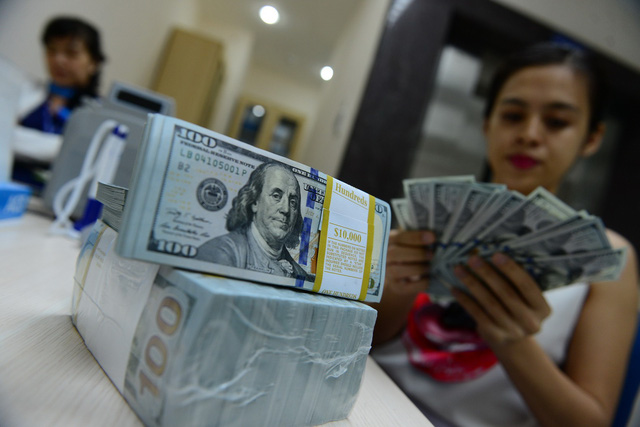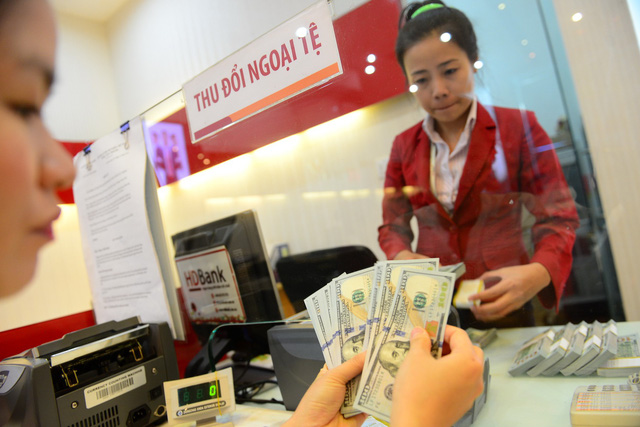Though Vietnam makes it clear that all payments in the country must be made in the Vietnamese dong, stores at tourists-packed areas continue to list their services and accept payment in foreign currencies to the legal risk of both the seller and the buyer.
According to the 2005 Ordinance on Foreign Exchange issued by the Standing Committee of the lawmaking National Assembly, all transactions, payments, price listings and advertisements made in Vietnam, by either a Vietnamese or foreign national, must be in the Vietnamese dong.
Exceptions are made only for bank transactions and other specific cases approved by the prime minister.
Violators are fined VND200-250 million ($8,500-10,700).
Despite effective regulations, foreign currencies, especially the U.S. dollar, remain a popular choice for payment in areas where foreign visitors are most densely populated.
At the popular ‘backpackers neighborhood’ in Ho Chi Minh City, encompassing De Tham, Pham Ngu Lao, and Bui Vien Streets in District 1, many hotels and accommodations list their room rates in both Vietnamese dong and U.S. dollars.
“Rooms start from: 20 $/nite [sic),” a sign outside a motel at the end of Bui Vien Street reads.
In an alley connecting Pham Ngu Lao and Bui Vien, a drove of nail salons and barbershops can be seen advertising their service in dollar prices, according to a report in Thanh Nien (Young People) newspaper.
 |
| US dollar banknotes in circulation in Vietnam. Photo: Tuoi Tre |
On the website of a travel agency offering scooter city tours that are popular with foreign visitors, all tours are listed in U.S. dollars, ranging from $53-93.
At places that list prices in Vietnamese dong, payments in foreign currencies such as the U.S. dollar or Euro are still widely accepted if requested by the customer.
According to financial expert Dinh Tuan Minh, the openness of Vietnam’s economy is high, which makes demands for payments in foreign currencies inevitable and “unable to be squashed."
“To limit the informal market and stop foreign currency transactions and payments, the formal market must be expanded,” he said.
“When a citizen needs $300 or $500 to buy souvenirs on a foreign trip, they won’t go to the black market if they can exchange foreign currencies at banks,” Minh explained.
Such a scenario will also help close the gap in forex rates between banks and unofficial currency exchange services, discouraging the people from using them, he added.
Like us on Facebook or follow us on Twitter to get the latest news about Vietnam!



















































